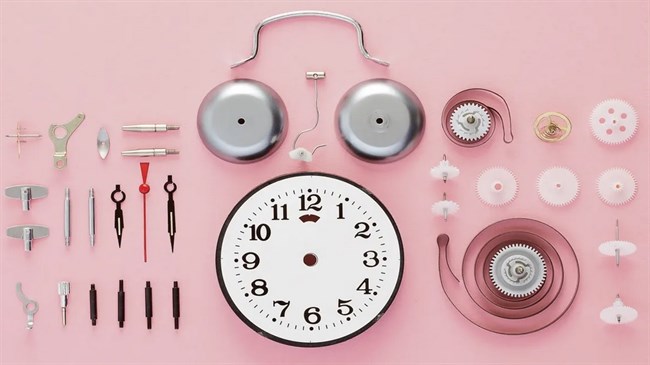Do you think you got enough sleep this past week? Can you remember the last time you woke up without an alarm clock, feeling refreshed, not needing caffeine? If the answer to any of these questions is ‘no’, you are not alone. Two-thirds of adults throughout all developed nations fail to obtain the recommended eight hours of nightly sleep.
Indeed, surveys by the UK Sleep Council and YouGov reveal that one out of every three people you pass on the streets of Britain regularly suffer from poor sleep. I doubt you are surprised by these facts, but you may be surprised by the consequences, The Guardian wrote.
Insufficient sleep is now one of the most significant lifestyle factors influencing whether or not you will develop Alzheimer’s disease. During sleep, a remarkable sewage system in the brain, called the glymphatic system, kicks into high gear. As you enter deep sleep, this sanitization system cleanses the brain of a sticky, toxic protein linked to Alzheimer’s, known as beta amyloid. Without sufficient sleep, you fail to get that power cleanse. With each passing night of insufficient sleep, that Alzheimer’s disease risk escalates, like compounding interest on a loan.
Parenthetically, and unscientifically, I have always found it curious that Margaret Thatcher and Ronald Reagan — two leaders who were very vocal, if not proud, about sleeping only four to five hours a night — both went on to develop the ruthless disease of Alzheimer’s. The current US president, Donald Trump — also a vociferous proclaimer of sleeping just a few hours each night — may want to take note.
Perhaps you have also noticed a desire to eat more when you’re tired? This is no coincidence. Too little sleep swells concentrations of a hormone that makes you feel hungry while suppressing a companion hormone that otherwise signals food satisfaction. Despite being full, you will still want to eat more. It’s a recipe linked to weight gain in sleep-deficient adults and children alike.
Worse, should you try to diet but don’t get enough sleep while doing so, it is futile, since up to 70 percent of the weight you lose will come from lean body mass, not fat. Turn these facts around and you realize that plentiful sleep is powerful tool for controlling your appetite, your weight and keeping your body trim.
Related is the association between plentiful slumber and athletic performance. Sleep is perhaps the greatest legal performance-enhancing ‘drug’ that few people are taking advantage of. Obtain less than eight hours of sleep a night, and especially less than six hours a night, and the following happens: Time to physical exhaustion drops by 10 to 30 percent, as does aerobic output; limb extension force and vertical jump height are reduced; peak and sustained muscle strength decrease. Add to this the cardiac, metabolic and respiratory effects: higher rates of lactic acid buildup and reductions in blood oxygen saturation with converse increases in carbon dioxide, due in part to a reduction in the amount of air that the lungs can expire in a sleep-deficient state. And then there is injury risk. Relative to sleeping nine hours a night, sleeping five to six hours a night will increase your chances of injury across a season by more than 200 percent.
Routinely sleeping less than six hours a night also compromises your immune system, significantly increasing your risk of cancer. So much so, that recently the World Health Organization classified any form of night-time shiftwork as a probable carcinogen.
Inadequate sleep — even moderate reductions of two to three hours for just one week — disrupts blood sugar levels so profoundly that you would be classified as pre-diabetic. Short sleeping increases the likelihood of your coronary arteries becoming blocked and brittle, setting you on a path towards cardiovascular disease, stroke and congestive heart failure.
Strikingly, all it takes is one hour of lost sleep, as demonstrated by a global experiment performed on 1.6 billion people across more than 60 countries twice a year, otherwise known as daylight saving times. In the spring, when we lose one hour of sleep, there is a 24 percent increase in heart attacks the following day. In the autumn, we gain an hour of sleep opportunity, and there is a 21 percent reduction in heart attacks. Most of us think little of losing an hour of sleep, yet it is anything but trivial.
Sleep disruption has further been associated with all major psychiatric conditions, including depression, anxiety and suicidality. Indeed, in my research over the past 20 years, we have not been able to find a single major psychiatric condition in which sleep is normal. Science is thus proving the prophetic wisdom of Charlotte Brontë, who stated that “a ruffled mind makes a restless pillow”.
Source:Irandaily



